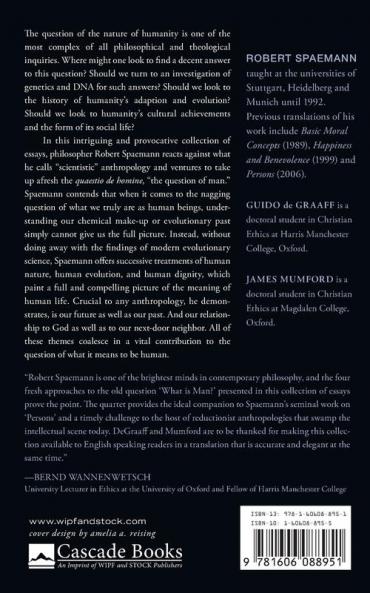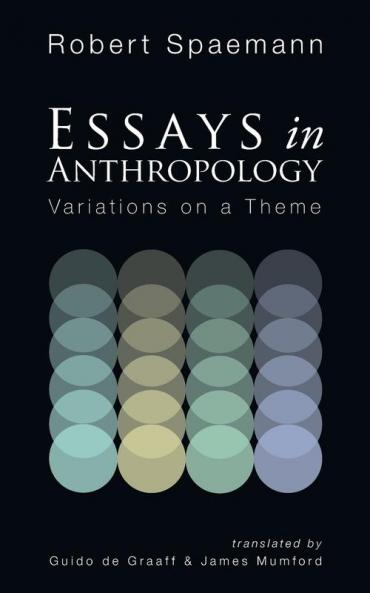English
Paperback
₹1348
₹1520
11.32% OFF
(All inclusive*)
Delivery Options
Please enter pincode to check delivery time.
*COD & Shipping Charges may apply on certain items.
Review final details at checkout.
Looking to place a bulk order? SUBMIT DETAILS
About The Book
Description
Author
Description: The question of the nature of humanity is one of the most complex of all philosophical and theological inquiries. Where might one look to find a decent answer to this question? Should we turn to an investigation of genetics and DNA for such answers? Should we look to the history of humanitys adaption and evolution? Should we look to humanitys cultural achievements and the form of its social life? In this intriguing and provocative collection of essays philosopher Robert Spaemann reacts against what he calls scientistic anthropology and ventures to take up afresh the quaestio de homine the question of man. Spaemann contends that when it comes to the nagging question of what we truly are as human beings understanding our chemical make-up or evolutionary past simply cannot give us the full picture. Instead without doing away with the findings of modern evolutionary science Spaemann offers successive treatments of human nature human evolution and human dignity which paint a full and compelling picture of the meaning of human life. Crucial to any anthropology he demonstrates is our future as well as our past. And our relationship to God as well as to our next-door neighbor. All of these themes coalesce in a vital contribution to the question of what it means to be human. Endorsements: Robert Spaemann is one of the brightest minds in contemporary philosophy and the four fresh approaches to the old question What is Man? presented in this collection of essays prove the point. The quartet provides the ideal companion to Spaemanns seminal work on Persons and a timely challenge to the host of reductionist anthropologies that swamp the intellectual scene today. DeGraaff and Mumford are to be thanked for making this collection available to English speaking readers in a translation that is accurate and elegant at the same time. --Bernd Wannenwetsch University Lecturer in Ethics at the University of Oxford and Fellow of Harris Manchester College About the Contributor(s): Robert Spaemann taught at the universities of Stuttgart Heidelberg and Munich until 1992. Previous translations of his work include Basic Moral Concepts (1989) Happiness and Benevolence (1999) and Persons (2006). Guido de Graaff is a doctoral student in Christian Ethics at Harris Manchester College Oxford. James Mumford is a doctoral student in Christian Ethics at Magdalen College Oxford.
Delivery Options
Please enter pincode to check delivery time.
*COD & Shipping Charges may apply on certain items.
Review final details at checkout.
Details
ISBN 13
9781606088951
Publication Date
-15-06-2010
Pages
-122
Weight
-131 grams
Dimensions
-127x203x7.31 mm











